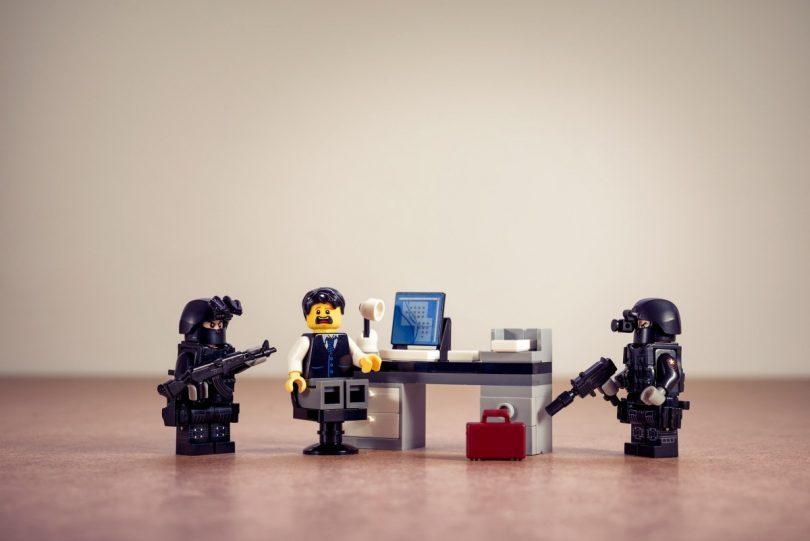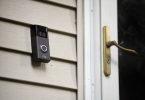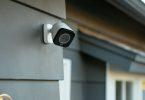[ad_1]
Expertise has made surveillance simple and low-cost — however when does the federal government’s high-tech snooping cross the road?

BOSTON (CN) — Can police set up a secret video digicam exterior somebody’s house and document all the things that occurs there for eight months? The First Circuit appeared doubtful throughout oral argument Tuesday, however the judges additionally struggled to determine the place to attract the road as to when police want a warrant for his or her high-tech surveillance.
“Wouldn’t many people really feel insecure if we out of the blue came upon a digicam was recording all the things that occurred within the curtilage of our home?” requested U.S. Circuit Decide William Kayatta.
“That might make me really feel insecure,” the Obama appointee mentioned. “Why wouldn’t most individuals really feel that means?”
U.S. Circuit Decide O. Rogeriee Thompson, a fellow Obama appointee, complained that the federal government was arguing that its proper to spy on individuals “needs to be limitless.”
“Are we simply going to place these cameras in entrance of all people’s home and monitor them and see if anyone’s as much as something?” she requested.
However in a contentious argument that was scheduled for 40 minutes and lasted two hours, U.S. Circuit Decide Sandra Lynch insisted again and again that the truth that a police officer may stroll by a home and see what was taking place exterior meant that the federal government had a proper to make use of a hidden digicam to see what was taking place exterior all day lengthy for months on finish.
“What affordable expectation of privateness do individuals have in prison exercise of their driveway?” the Clinton appointee requested, repeatedly suggesting that the snooping on this case was justified by the truth that it appeared to have turned up proof of wrongdoing.
The case concerned Daphne Moore, a former assistant clerk-magistrate with the Springfield, Massachusetts, court docket system, in addition to her daughter and son-in-law. Police charged family members with trafficking medication from Springfield to Vermont the place they’d change them for money and firearms.
A lot of the proof got here from a secret video digicam that police mounted on a utility pole exterior Moore’s house, the place her daughter and son-in-law have been frequent friends. The digicam recorded all the things that occurred exterior the house and produced a searchable digitized document.
Law enforcement officials have been capable of tilt and pan the digicam, in addition to zoom in to learn license plates, though they couldn’t see inside the house or document audio.
The First Circuit permitted an analogous digicam again in 2009. However the Moores argued that the 2009 case was not legitimate after a 2018 Supreme Court decision that mentioned the Fourth Modification might be violated by a cellphone-location-tracking gadget.
A federal choose sided with the Moores in June 2019, ruling that the digicam proof couldn’t be used at trial as a result of the police didn’t have a warrant. A yr later, a three-judge panel of the First Circuit disagreed and sided with the federal government. However the court docket agreed to rehear the case en banc on the urging of U.S. Circuit Decide David Barron.
Barron, an Obama appointee, mentioned it might be completely wonderful for a police officer to stroll by the Moores’ house and take a photograph, however the continuous surveillance for months on finish created the next degree of concern. He in contrast it to the distinction between a runner on second base sometimes stealing a catcher’s indicators, and the house group putting in a secret digicam and videotaping the opposing group’s catcher always.
The American Civil Liberties Union and a lot of press and different civil liberties organizations waded into the case on the aspect of the Moores.
Police may abuse the know-how, the ACLU warned, suggesting that if officers didn’t want a warrant for a utility pole digicam, they may “watch ex-girlfriends, or confirm who’s attending Black Lives Matter protests, or catalog who’s leaving house in the course of the pandemic, or monitor undocumented immigrants.”
The group mentioned this could disproportionately impression “communities of coloration and densely populated communities the place persons are extra more likely to be surveilled by regulation enforcement and fewer capable of erect bodily obstacles to that surveillance.”
Bodily obstacles have been a problem on the argument. “Do you must put up timber?” requested Thompson.
U.S. Lawyer Randall Kromm mentioned individuals don’t have an affordable expectation of privateness of their entrance yard except they “do one thing to point an intent to maintain issues personal.”
“What a couple of no-trespassing signal?” requested Lynch.
Kromm mentioned that wasn’t sufficient as a result of it wouldn’t cease individuals on the road from trying into the yard.
Barron requested how excessive the digicam was on the utility pole, and Kromm guessed 20 toes. “I’m questioning how excessive a fence must be,” Barron deadpanned.
Nathan Wessler, a deputy director of the ACLU Speech, Privateness, and Expertise Undertaking, mentioned it didn’t matter as a result of the native Springfield zoning guidelines wouldn’t enable a fence of any top.
Wessler additionally mentioned the argument that the digicam confirmed solely what the general public may ordinarily see was mistaken as a result of “members of the general public don’t sometimes spend time on the prime of a utility pole.”
Whereas Lynch was strongly in help of limitless snooping, Barron, Thompson and Kayatta all had reservations.
“The Fourth Modification is designed to make us really feel safe in our individuals. As new methods of looking out and applied sciences develop, shouldn’t we not lose the identical degree of safety that we had earlier than?” Kayatta requested.
Kromm responded that “a helicopter seeing our yard, or cops going by way of our trash, or subpoenas of telephone data may also make you insecure, however these are OK” underneath Supreme Court docket rulings.
“But when a drone sat over your own home for eight months, wouldn’t the Supreme Court docket deal with that in a different way?” Thompson requested.
Nonetheless, the judges appeared hesitant to require a full-blown warrant. Each Thompson and Lynch requested protection lawyer Judith Mizner at what level the digicam grew to become a search, and what precisely distinguished acceptable statement from unlawful spying.
“It turns into a search when it goes past what a fairly nosy neighbor could be anticipated to see,” mentioned Mizner, of the Federal Public Defender Workplace.
Wessler added that pole cameras are completely different from nosy neighbors as a result of “a pole digicam doesn’t should take a break to sleep, go to the toilet or reply the telephone.”
However the judges nonetheless appeared to wrestle with the place to attract the road. “What if we mentioned you must have affordable suspicion” quite than possible trigger for a warrant, Kayatta requested, and there was some indication that the judges may deal with that as a compromise.
The fifth choose on the panel, U.S. Circuit Chief Decide Jeffrey Howard, repeatedly requested what the distinction is between the pole digicam and customary CCTV and safety cameras that the police can generally entry in the event that they suppose they may have picked up criminal activity.
Wessler answered that, “if police went to a neighbor and requested for a recording, that may be completely different — most safety cameras don’t save eight months of knowledge.”
“So it is dependent upon whether or not the particular person is being focused,” mentioned Howard, a George W. Bush appointee. “That is good,” he added, suggesting that he had discovered a strategy to restrict pole cameras with out hampering the flexibility of police to make use of CCTV footage.
Lynch then launched right into a prolonged speech concerning the death of Sarah Everard in England, and the truth that many ladies there are protesting for extra CCTV cameras, partially to guard themselves towards police misbehavior towards ladies.
Mizner countered that “the Fourth Modification on this nation is designed to supply safety towards the federal government,” and that “the cameras on this case weren’t designed to guard towards authorities misconduct.”
Thompson appeared to sense that the divided panel was unlikely to give you a sweeping pronouncement. “What’s the narrowest holding we may make?” she requested Mizner.
Mizner instructed sticking carefully to the details. She proposed: “A digicam that data all the things within the entrance of your house, 24 hours a day, seven days every week, for eight months, is a search.”
[ad_2]
Source link







